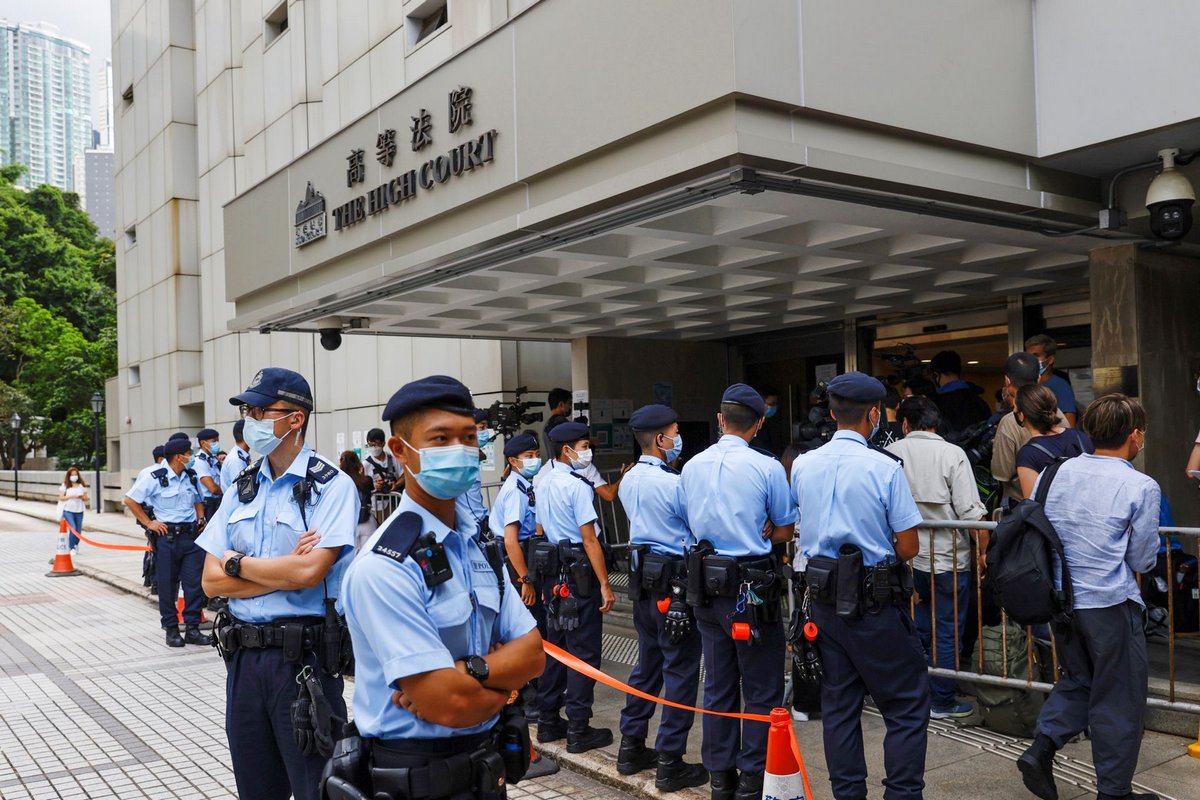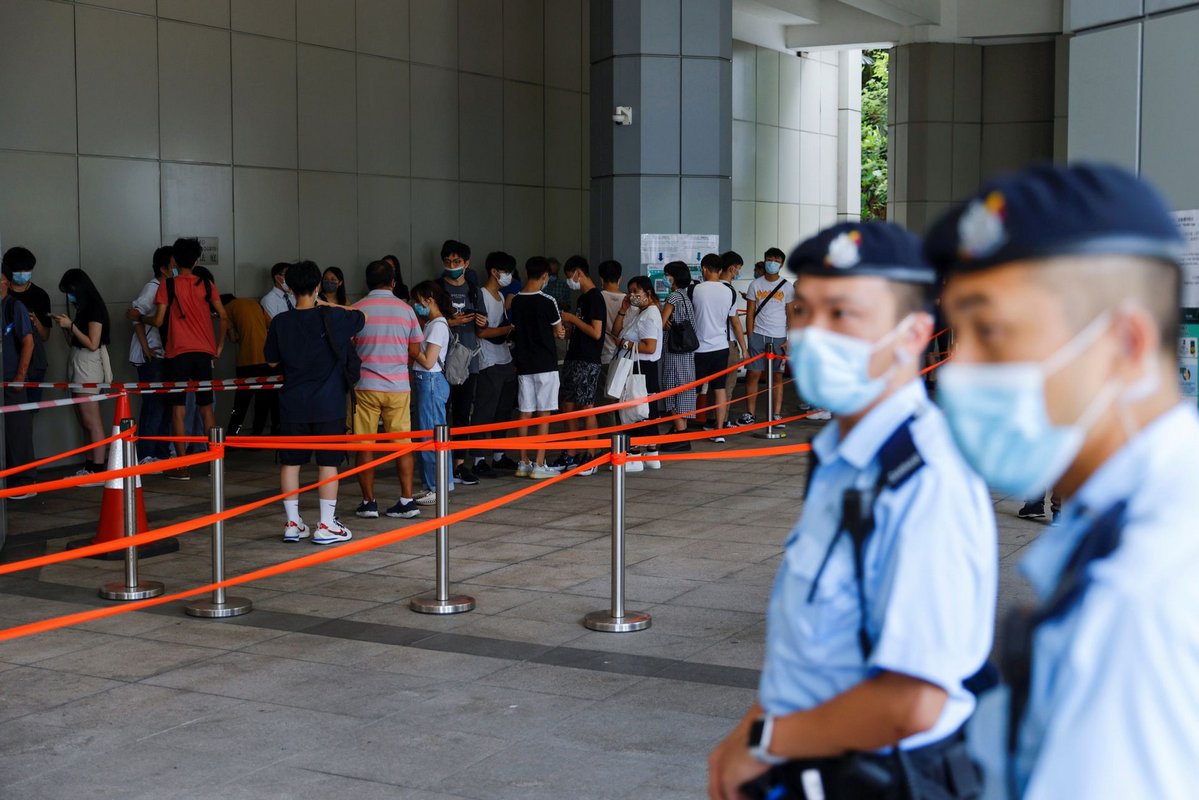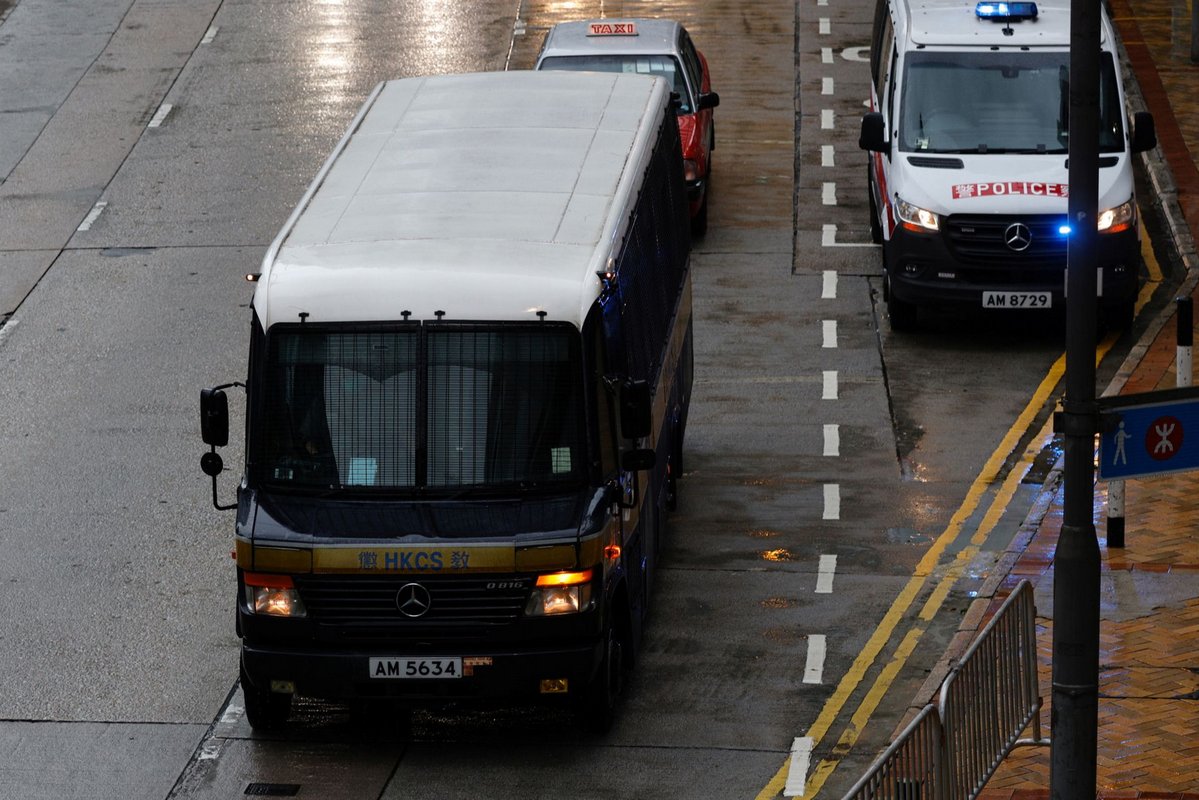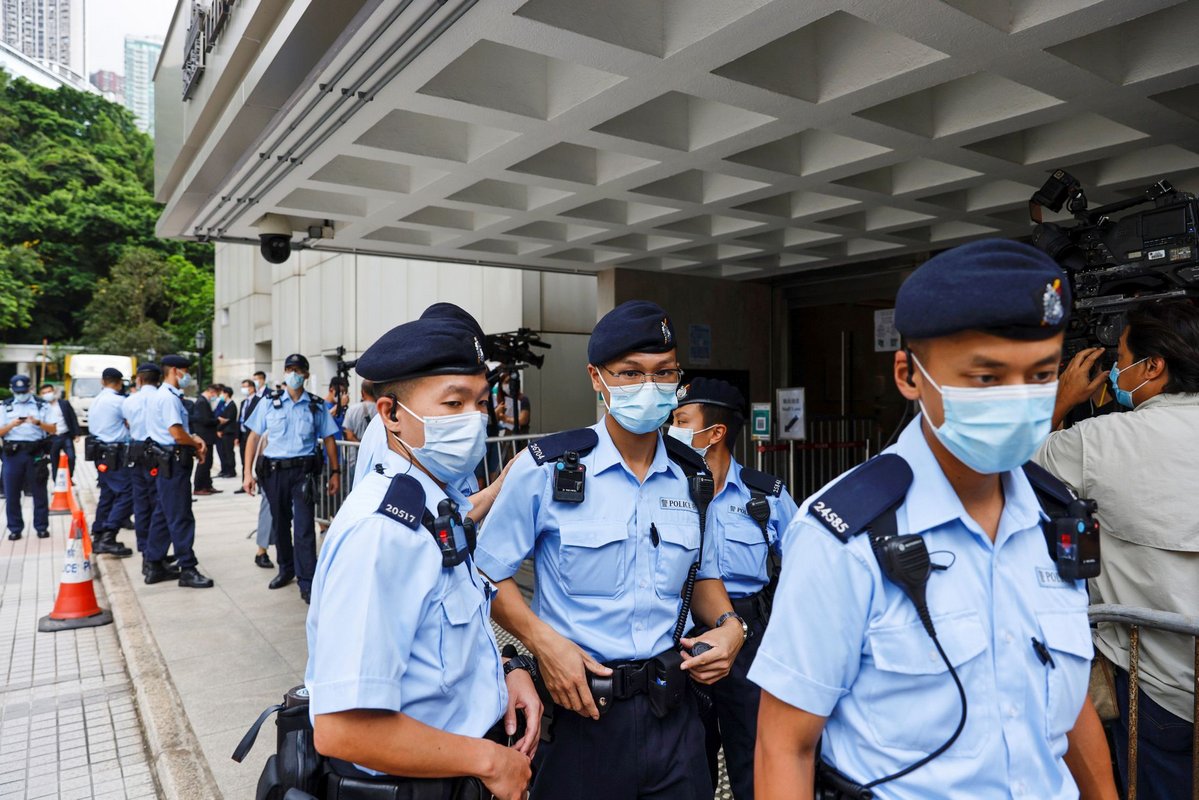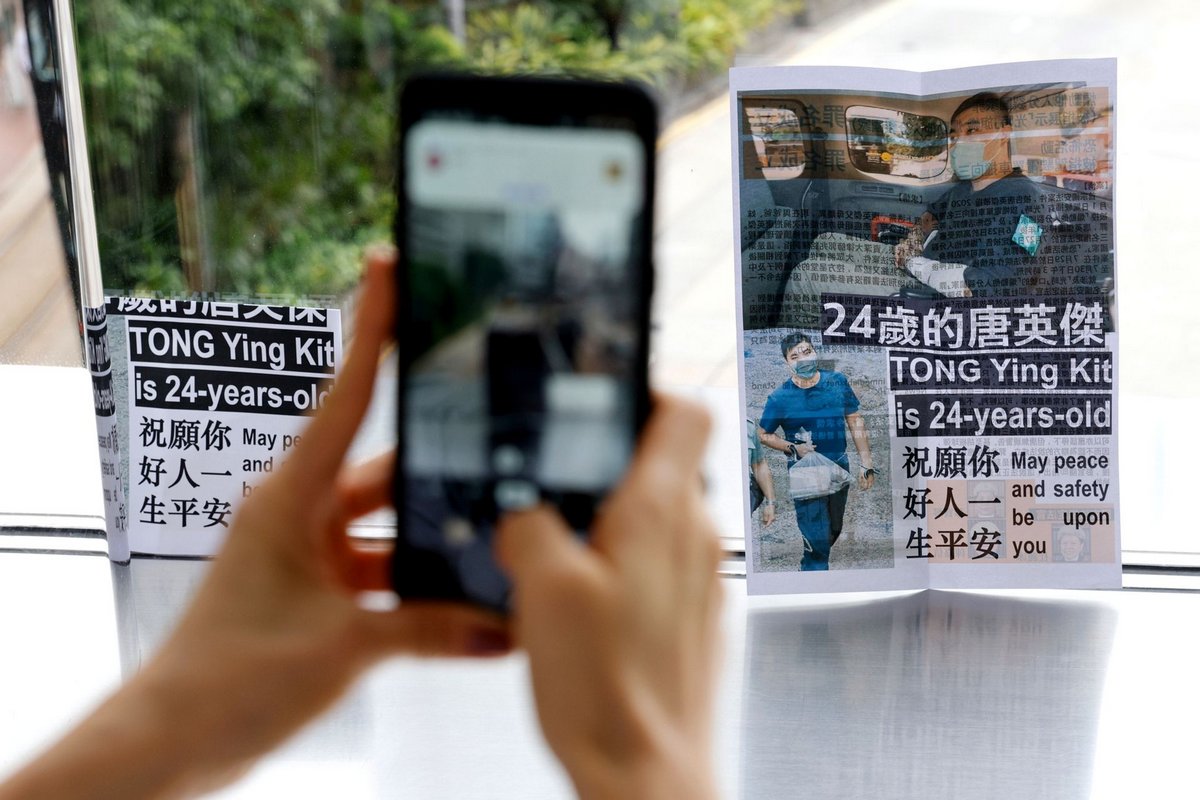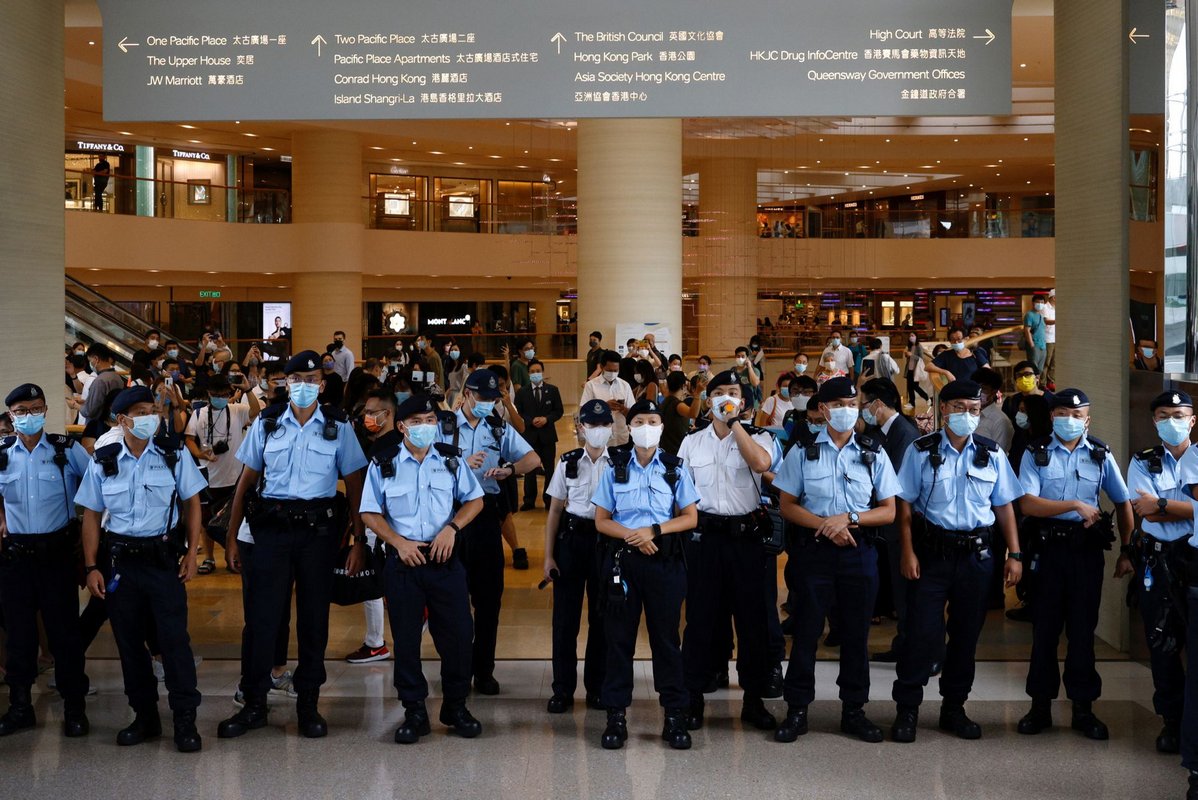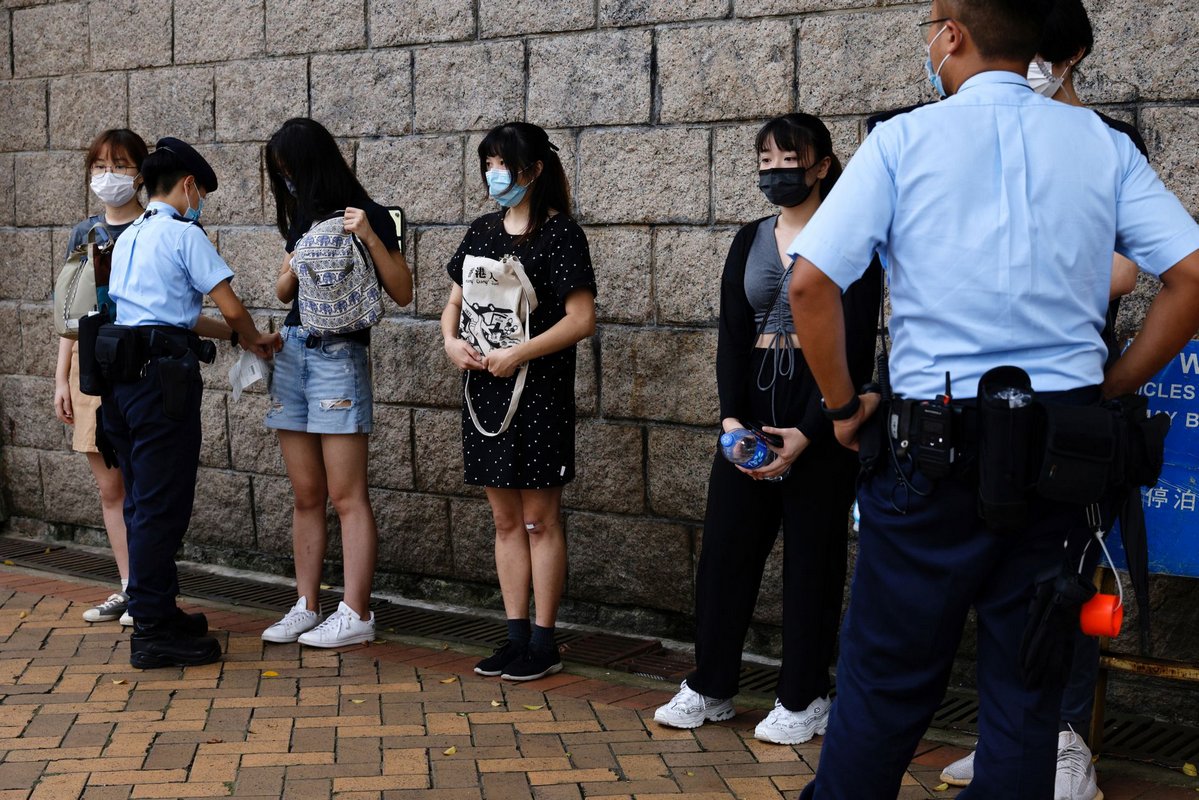The first person convicted under Hong Kong’s national security law was jailed for nine years on Friday for terrorist activities and inciting secession, judges said, in a watershed ruling with long-term implications for the city’s judicial landscape.
Former waiter Tong Ying-kit, 24, was accused of driving his motorcycle into three riot police last year while carrying a flag with the protest slogan “Liberate Hong Kong. Revolution of our times.”
Tong’s lawyer, Clive Grossman, told reporters outside the court the defence would appeal both the verdict and the sentence. He made no further comment.
Tong did not testify during the trial.
After sentencing, however, he urged Hong Kongers to keep persevering like the city’s trail-blazing Olympic Games gold and silver medallists, Cheung Ka-long and Siobhan Haughey.
“Hang in there everyone, just like Hong Kong’s athletes,” Tong’s lawyer, Lawrence Lau, quoted him as saying.
Judges Esther Toh, Anthea Pang, and Wilson Chan – picked by city leader Carrie Lam to hear national security cases – ruled on Tuesday that the slogan was “capable of inciting others to commit secession”.
On Friday, the judges sentenced Tong to 6-1/2 years for inciting secession and eight years for terrorist activities. Of these, 2-1/2 years will run consecutively, resulting in a total term of nine years.
“We consider that this overall term should sufficiently reflect the defendant’s culpability in the two offences and the abhorrence of society, at the same time, achieving the deterrent effect required,” they said in a written judgment.
Human rights groups criticised Tong’s conviction, saying it imposes new limits on free speech, as well as the precedents set by the trial, which they say contrast with Hong Kong’s common law traditions.
Amnesty International’s Yamini Mishra said in a statement the sentencing showed the security law “is not merely a tool to instil terror into government critics in Hong Kong; it is a weapon that will be used to incarcerate them.”
Prominent exiled Hong Kong activist Nathan Law said the lengthy sentence was “outrageous”.
“Tong is not a terrorist, Hong Kong protesters are not terrorists. The Hong Kong government uses this stigmatization to discredit the democratic movement and justify its suppression.”
The Hong Kong government did not immediately respond to a request for comment on the accusations but security secretary Chris Tang told reporters he welcomed the sentence.
“The court has ruled that the slogan connotes Hong Kong independence,” Tang said. “If you say this slogan, you need to bear the consequences.”
‘SECESSIONIST’ AGENDA
Tong had been denied bail in line with a provision of the national security law that puts the onus on the defendant to prove they would not be a security threat if released. Tong also did not get a trial by jury because of a perceived risk to the personal safety of jurors.
Hong Kong and China have repeatedly said that all the rights and freedoms promised to the former British colony upon its return to Chinese rule in 1997 were intact, but that national security was a red line. All cases have been handled in accordance with the law, both governments have said.
While the defence had asked for lenience, describing Tong as a decent young man supporting his father and younger sister who had done something stupid, the court dismissed most mitigation arguments as he had pleaded not guilty.
Tong was also found guilty of terrorist activities, with judges ruling on Tuesday that his motorcycle was potentially a lethal weapon and his actions “a deliberate challenge mounted against the police”.
“Whoever carries out terrorist activities with a view to intimidating the public in order to pursue political agenda, whatever that is, should be condemned and punished,” they wrote.
Tong’s trial focused mostly on the meaning of the “Liberate Hong Kong” slogan, which was ubiquitous during the 2019 pro-democracy protests.
The arguments over interpretation drew on topics such as Chinese history, the U.S. civil rights movement, and Malcolm X.
The defence argued it could mean different things to different people including the desire for democracy and freedom, but the judges ruled that they were “sure that the defendant fully understood the slogan to bear the meaning of Hong Kong independence”.
 Alghadeer TV Alghadeer TV
Alghadeer TV Alghadeer TV
